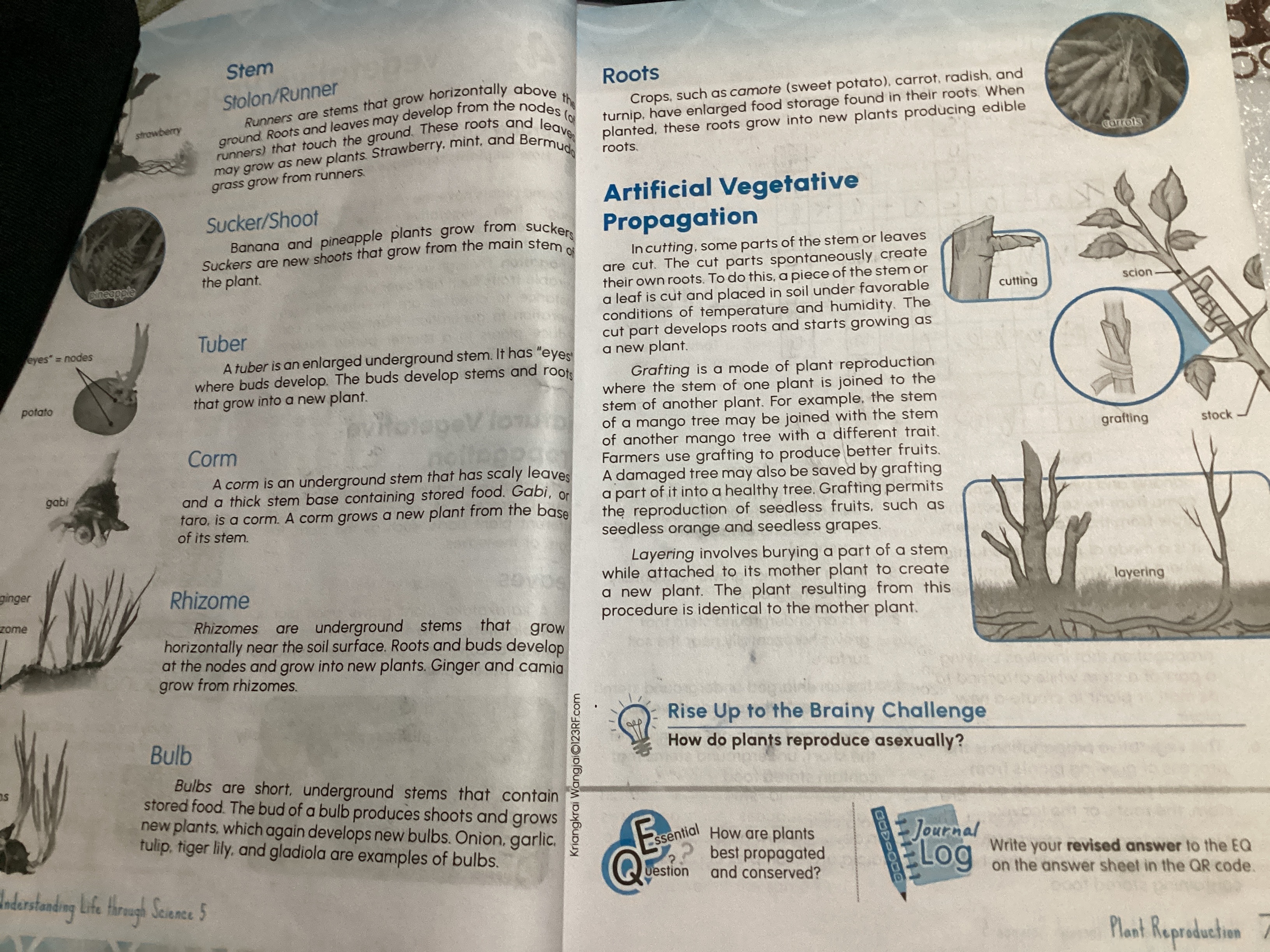How do plants reproduce asexually?

Understand the Problem
The question is asking how plants reproduce asexually, which involves understanding different methods and processes plants use to propagate without sexual reproduction.
Answer
Plants reproduce asexually using stolons, suckers, tubers, corms, rhizomes, bulbs, and artificial methods like cutting, grafting, and layering.
Plants reproduce asexually through methods like stem structures (stolons/runners, suckers, tubers, corms, rhizomes, bulbs) and artificial vegetative propagation techniques (cutting, grafting, layering).
Answer for screen readers
Plants reproduce asexually through methods like stem structures (stolons/runners, suckers, tubers, corms, rhizomes, bulbs) and artificial vegetative propagation techniques (cutting, grafting, layering).
More Information
Asexual reproduction in plants results in offspring genetically identical to the parent. It allows for rapid propagation of species, particularly beneficial in stable environments.
Tips
Don't confuse asexual reproduction with sexual, which requires flowers and seeds. Understand that asexual methods involve parts of the plant itself.
Sources
- Asexual Reproduction in Plants - Biology LibreTexts - bio.libretexts.org
- Asexual Reproduction in Plants | Biology for Majors II - courses.lumenlearning.com
- Asexual reproduction in plants - Propagating and growing ... - BBC - bbc.co.uk
AI-generated content may contain errors. Please verify critical information